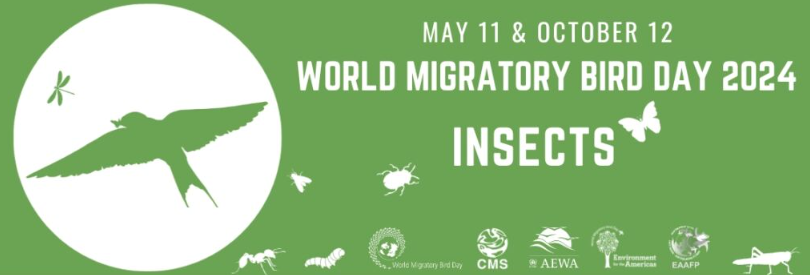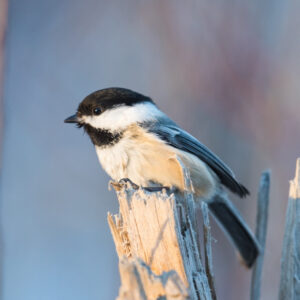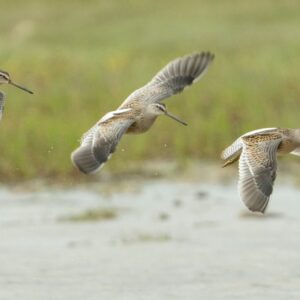Protect Insects to Protect Birds!

Did you know that insectivorous birds on average consume between 400 and 500 million tons of insects every year?1 One pair of Chickadees alone can eat 15,000 caterpillars during their breeding season! Most species of birds consume insects at some point in their annual cycles. This May 11th, Nature Canada, Environment for the Americas and QuebecOiseaux invite you to join us in celebrating World Migratory Bird Day. Whether you are planning to start your own local event or join one of the events hosted by our Nature Network across the country, we encourage you to get outside and get involved in welcoming the return of migratory birds to our neighbourhoods.
This year’s conservation theme, Protect Insects to Protect Birds, brings awareness to the critical role insects play in supporting annual bird migration, nesting and breeding season. Migratory birds’ main food source along their journey include midges, gnats, and other flies; ephemerals like Mayflies; a wide range of caterpillars, beetles, grasshoppers; and more. Insect populations at stop-over sites during migration even impact the timing of their migratory journeys, which typically coincide with peak-insect abundances along flyway routes.
As insect populations are rapidly declining globally2, World Migratory Bird Day is an opportunity to highlight the importance of reducing the use of pesticides in our day-to-day lives, in agriculture and in forestry. Switching to organic farming practices, maintaining habitat connectivity, and planting native species in our gardens — while banning cosmetic use of pesticides in your municipality — are important ways that we can work towards protecting both insects and birds this World Migratory Bird Day. Furthermore, birds are remarkable natural pest-control agents and without them, harmful outbreaks of certain insects can pose negative threats to agriculture and tree health.
So what are you waiting for? Find a local Bird Day event to celebrate, and educate your community to take action together to help protect migratory birds and insect populations today!
For more information about the impacts of insecticides on birds please visit the University of Saskatchewan to learn more about Dr. Christy Morrissey’s research in Canada on the negative impacts of pesticides on birds. Join Nature Canada and Dr. Christy Morrisey on Tuesday, April 23rd from 12:00 – 1:00 pm EDT to discuss the impact of pesticide use on birds and insects across agricultural landscapes — click here to register.
If you’d like to share this year’s World Migratory Bird Day promotional material please visit Environment for the America’s Digital Resource Library.
1 Martin Nyffeler, Çağan H. Şekercioğlu, Christopher J. Whelan. Insectivorous birds consume an estimated 400–500 million tons of prey annually. The Science of Nature, 2018; 105 (7-8) DOI: 10.1007/s00114-018-1571-z
2 Martin M. Gossner, Florian Menzel, Nadja K. Simons. Less overall, but more of the same: drivers of insect population trends lead to community homogenization. Biology Letters, 2023; 19 (3) DOI: 10.1098/rsbl.2023.0007



